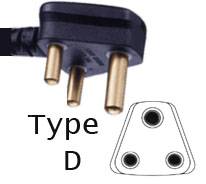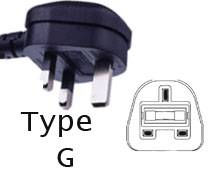Zimbabwe, located in southern Africa, is a country of diverse landscapes, rich history, and vibrant culture. From the majestic Victoria Falls to the ancient ruins of Great Zimbabwe and the wildlife-rich plains of Hwange National Park, Zimbabwe offers travelers an unforgettable journey filled with adventure, natural beauty, and cultural experiences.
Ultimate Zimbabwe Travel Guide
Destinations
Best time to go
The best time to visit Zimbabwe depends on your interests and planned activities. The dry season, from May to October, is ideal for wildlife viewing and outdoor adventures, with cooler temperatures and clearer skies. This period also offers excellent conditions for visiting Victoria Falls, as water levels are lower, allowing for clearer views and exciting activities such as white-water rafting. However, if you’re interested in birdwatching or experiencing lush green landscapes, the wet season, from November to April, brings vibrant vegetation and increased birdlife.
Average Temperature By Month
January: 21°C (70°F)
February: 21°C (70°F)
March: 20°C (68°F)
April: 18°C (64°F)
May: 15°C (59°F)
June: 13°C (55°F)
July: 12°C (54°F)
August: 15°C (59°F)
September: 18°C (64°F)
October: 20°C (68°F)
November: 21°C (70°F)
December: 21°C (70°F)
What To Expect
Time Zone:
Zimbabwe operates on Central Africa Time (CAT), which is 2 hours ahead of Coordinated Universal Time (UTC+2).
Currency:
The official currency of Zimbabwe is the Zimbabwean Dollar (ZWL), although other currencies such as the US Dollar and South African Rand are also widely accepted. Currency exchange services are available at banks, exchange bureaus, and hotels. Credit cards are accepted in major cities and tourist establishments, but it's advisable to carry cash for transactions in more rural areas.
Language:
The official language of Zimbabwe is English, which is widely spoken and understood, especially in urban areas and among the educated population. However, Zimbabwe is home to several indigenous languages, including Shona and Ndebele, which are spoken by different ethnic groups.
Airport:
The main international airport serving Zimbabwe is Robert Gabriel Mugabe International Airport (HRE), located near the capital city of Harare. It offers connections to various domestic and international destinations.
How To Get Around
Domestic Flights: Domestic flights are available for traveling between major cities and popular tourist destinations. Airlines such as Air Zimbabwe and Fastjet operate regular flights, providing a quick and convenient mode of transportation.
Bus: Buses are a common mode of transportation for traveling between cities and towns in Zimbabwe. Several bus companies operate services on various routes, offering affordable and reliable transportation options.
Car Rental: Renting a car is a popular option for travelers who prefer flexibility and independence. Several international and local car rental companies operate in major cities and at the airport, offering a range of vehicles to suit different budgets and preferences.
Taxi: Taxis are readily available in urban areas and can be hailed from the street or hired from taxi stands. It’s advisable to negotiate the fare before starting your journey, as taxis in Zimbabwe may not always use meters.
Average Temperature By Month:
January: 21°C (70°F)
February: 21°C (70°F)
March: 20°C (68°F)
April: 18°C (64°F)
May: 15°C (59°F)
June: 13°C (55°F)
July: 12°C (54°F)
August: 15°C (59°F)
September: 18°C (64°F)
October: 20°C (68°F)
November: 21°C (70°F)
December: 21°C (70°F)
Plugs:
The standard voltage in Zimbabwe is 220-240 volts AC, 50Hz. The most commonly used plug types are Type G (British) and Type D (Indian). It's advisable to bring a universal adapter if your devices have different plug types.
VPN:
Access to certain websites and online services may be restricted in Zimbabwe. Consider using a virtual private network (VPN) to securely access the internet and bypass any censorship restrictions.
Safety:
Zimbabwe is generally a safe destination for tourists, but it's essential to take normal precautions to ensure your safety and security. Be mindful of your belongings, especially in crowded areas, and avoid walking alone at night in unfamiliar areas. Additionally, follow local advice and guidelines, particularly when visiting wildlife reserves and national parks. By staying informed and exercising common sense, you can enjoy a safe and rewarding journey through Zimbabwe's diverse landscapes and vibrant culture.
Credit Cards and Banks
Credit Cards:
Credit card acceptance in Zimbabwe is limited primarily to major hotels, upscale restaurants, and larger shops in urban areas like Harare, Bulawayo, and Victoria Falls. Visa and MasterCard are the most commonly accepted, but even they may not be accepted everywhere. It’s advisable to carry enough cash, especially when traveling to rural areas or smaller towns where card acceptance is rare.
ATMs:
ATMs can be found in major cities and tourist areas throughout Zimbabwe, allowing you to withdraw Zimbabwean Dollar (ZWL) or US dollars. Harare, Bulawayo, and Victoria Falls have a good number of ATMs, but they may be scarce in more remote regions. It’s recommended to withdraw enough cash when you have access to ATMs.
Currency Exchange:
The currency of Zimbabwe is the Zimbabwean Dollar (ZWL). However, US dollars are widely accepted for transactions alongside the Zimbabwean Dollar. You can exchange major foreign currencies at banks, currency exchange bureaus, and some hotels. US dollars, euros, and British pounds are typically the most widely accepted foreign currencies for exchange.
Banks:
Major banks in Zimbabwe include:
- Reserve Bank of Zimbabwe: The central bank of Zimbabwe, responsible for monetary policy and regulating the country’s financial institutions.
- CBZ Bank: One of the largest banks in Zimbabwe, CBZ Bank offers a wide range of banking services including savings accounts, loans, and foreign exchange.
- Stanbic Bank Zimbabwe: Operating as part of the international Standard Bank group, Stanbic Bank Zimbabwe provides various banking products and services for individuals and businesses.
Traveler’s Checks:
Traveler’s checks are becoming less common, and their usage is limited in Zimbabwe. It’s recommended to carry cash or use credit/debit cards for transactions.
Tips for Banking in Zimbabwe:
- Notify your bank before traveling to Zimbabwe to avoid any issues with card usage abroad.
- Keep your PIN and card information secure, and be cautious when using ATMs, especially in secluded areas.
- Carry small denominations of Zimbabwean Dollar or US dollars for smaller purchases, as change may be limited.
- Familiarize yourself with the current exchange rate to ensure fair transactions when exchanging currency.
By understanding the banking system in Zimbabwe, you can ensure a smooth and hassle-free financial experience during your travels in the country.
Locations
Zimbabwe
TRAVEL FACTS
US State Dept Travel Advisory
The US Department of State currently recommends US citizens exercise increased caution in Zimbabwe due to crime and official harassment of US citizens.
https://travel.state.gov/content/travel/en/traveladvisories/traveladvisories.html
Passport/Visa Requirements
For the latest passport and visa requirements for this country, please consult the U.S. State Department’s “Learn About Your Destination” search tool, available through the link below.
US Embassy/Consulate
+(263) (0) 867-701-1000; US Embassy Harare, 2 Lorraine Drive, Bluffhill, Harare, Zimbabwe; consularharare@state.gov; https://zw.usembassy.gov/
LGBTQIA+ Travelers
Telephone Code
263
Local Emergency Phone
Ambulance: 994, 999; Fire: 993, 999; Police: 995, 999
Vaccinations
The CDC and WHO recommend the following vaccinations for Zimbabwe: hepatitis A, hepatitis B, typhoid, cholera, yellow fever, rabies, meningitis, polio, measles, mumps and rubella (MMR), Tdap (tetanus, diphtheria and pertussis), chickenpox, shingles, pneumonia, influenza, and COVID-19.
Climate
Tropical; moderated by altitude; rainy season (November to March)
Currency (Code)
Zimbabwean dollars (ZWD)
Electricity/Voltage/Plug Type(s)
240 V / 50 Hz / plug types(s): D, G


Major Languages
Shona, Ndebele , English, 13 minority languages
Major Religions
Apostolic Sect, Pentecostal, Protestant, other Christian, Roman Catholic, African traditionalist
Time Difference
UTC+2 (7 hours ahead of Washington, DC, during Standard Time)
Potable Water
Opt for bottled water
International Driving Permit
Suggested
Road Driving Side
Left
Tourist Destinations
Harare; Chinhoyi Caves; Bulawayo; Great Zimbabwe Ruins; Hwange National Park; Mana Pools National Park; Lake Kariba; Victoria Falls, Matobo National Park
Major Sports
Soccer, cricket, tennis, handball
Cultural Practices
Zimbabwean tribes and communities are traditionally collectivistic. People tend to put their group or family’s interests before their own, receiving support, protection and a sense of belonging in return.
Tipping Guidelines
At restaurants, the tipping standard is usually 10% of the bill. Tip safari guides at the end of a tour $10-15 (USD) per person per day.
Souvenirs
Copper, wood, and soapstone carved items; local fabrics; basketwork; pottery; leather goods
Traditional Cuisine
Sadza — cornmeal mixed with water until it becomes a stiff dumpling-like porridge which is then boiled; typically served hot as a side dish for meat or vegetable stews
Please visit the following links to find further information about your desired destination.
World Health Organization (WHO) – To learn what vaccines and health precautions to take while visiting your destination.
US State Dept Travel Information – Overall information about foreign travel for US citizens.
To obtain an international driving permit (IDP). Only two organizations in the US issue IDPs:
American Automobile Association (AAA) and American Automobile Touring Alliance (AATA)
How to get help in an emergency?
Contact the nearest US embassy or consulate, or call one of these numbers:
from the US or Canada – 1-888-407-4747 or from Overseas – +1 202-501-4444
Central Intelligence Agency.
The World Factbook.
/the-world-factbook
(May 8, 2024)



